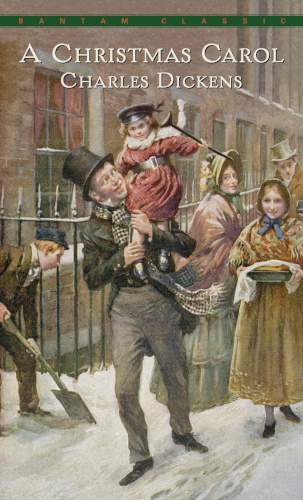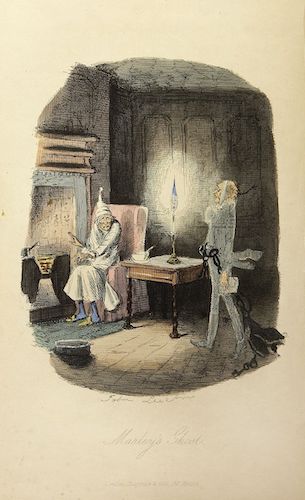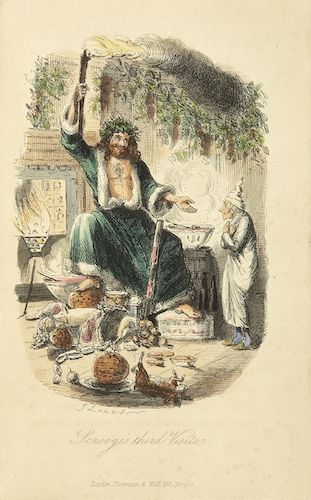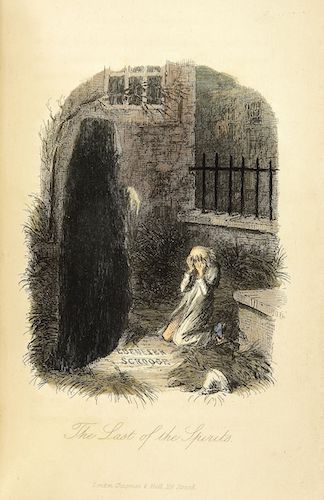Charles Dickens’ A Christmas Carol is one fine example of Victorian literature at its best. The story has been adapted by various artists over the years across multiple art forms, each trying to capture what Dickens’ book so vividly brought to life. The book first hit shelves in December 1843, and today—a mere 178 years later—the festive holiday season remains dominated by that story, inspiring all kinds of merchandise and products every year. Even the term “Scrooge” became implanted in the social lexicon to mean miserly. With so many spins and adaptations, you probably feel like you already know the story and the message. Is it even worth reading the original A Christmas Carol? Yes! We think so. Here are a few reasons why Charles Dickens’ original tale of avarice and redemption is still a delightful, meaningful, and fulfilling story to read even after nearly 200 years.
1. No Adaptation Fully Captured the Book
Capturing the complete thematic tone of a literary work is never a simple process, and it holds just as true for A Christmas Carol. For all of the adaptations there have been of Dickens’s masterpiece, never has one quite captured the bleak, cold ambience of the text. The moments that terrify and torment Scrooge as he confronts the ghosts of Jacob Marley, Christmas Past, Present, and Future are yet to be fully brought across by any filmmaker in a wholly realized way. Sure, some adaptations came close to reaching Dickens’ envisioned world and journey of Ebenezer Scrooge, with the 1951 film Scrooge and the 1992 picture The Muppet Christmas Carol arguably coming closest. But if one wishes to experience the full story of Ebenezer Scrooge’s Christmas Eve, then picking up a copy of the book is still the best way of getting to grips with it.
2. Reading the Book During the Christmas Season Is a Profound Treat
The book is about 70 pages long, which—by any stretch—is a short story to read. That, in turn, lends itself to the idea of re-reading the novel every year during the Christmas season without any real trouble. A Christmas Carol is a story for a very particular time of year, as referenced by the title, and the experience of absorbing the book’s message at Christmas always stays with the reader. This proves to be Dickens’ greatest trick, as it lifts the Christmas spirit and has an intense effect on anyone willing to grapple with Dickens’ profound statement about family, greed, and hatred. To finish reading the book on Christmas morning—the very same moment described by the book with Scrooge waking in his bed and thinking of the past night’s horror, joy, and regret of time lost—is a wondrous feeling. The crisp winter air greets the reader with the same sweetness that it met Dickens’ character that morning in 1843. The terrors have subsided, yet the lessons are learned and shall remain, stoically in place for every next Christmas to come.
3. The Message Stays With You
Upon turning the final page of Dickens’ book, the effect of the words will move you more potently than any film put forth by Hollywood. As Scrooge learns what his fate would be if he fails to change his dark and lonely path, the Ghost of Christmas Future disappears and leaves Scrooge to wake on Christmas morning a changed soul. By this point, he’s seen his past as a lonely young boy turned to the unfeeling man he became, and his present as those around him pretty much curse his name. But he also sees that some still defend him, believing that he isn’t beyond redemption. It’s not a pleasant revelation for Scrooge, who reveals his true nature as the book unfolds. However, as the reader, it has the striking effect of putting yourself in his place. You can’t help but think about Christmases past, the one at hand, and the ones yet to come.
4. It’s Still as Relevant as It’s Ever Been
There may be very few similarities between society of the mid-nineteenth century and the society of today, but A Christmas Carol is more than a pokey Christmas tradition. It has relevance that transcends any particular culture as it deals with fundamental human nature. Scrooge’s ordeal isn’t about Dickensian London. It’s about each of us, collectively and as individuals. While the infinite complexity of human emotions is different for each of us, Christmas puts aside all petty arguments and we come out as social creatures to spend those singular 24 hours together. A Christmas Carol gives the gift of retrospective, to look upon days gone by where we might’ve acted with less grace and altruism than we should’ve, so that we can learn and live better. Charles Dickens’ tale isn’t merely about an old man getting a new lease of life. It’s about how all of us should seize the moment, never allowing it to run out of our grasp. It’s a sound message that isn’t quickly forgotten. Read next: Geeky Christmas ornaments and decorations for your tree





